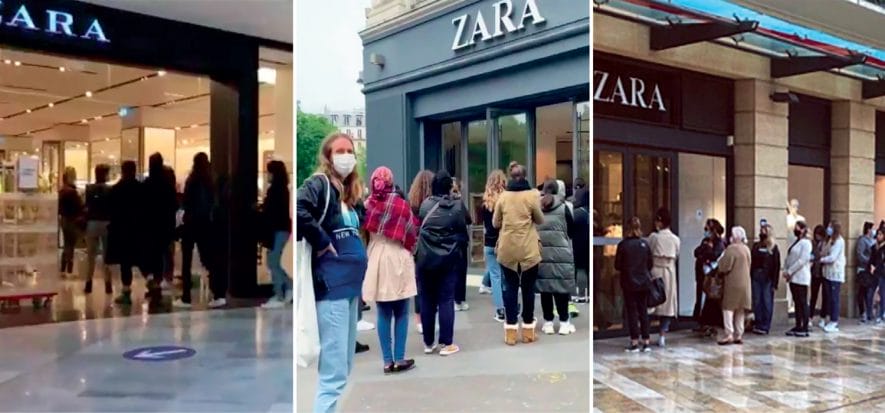It would be the time to bring the debate on fast fashion back to the fast fashion sector. The financial note published by H&M in early May testified to the crisis of a business model based on physical distribution. But the boom of Zara reopening in France tells us that the most important battle still needs to be fought in public opinion. Because up to now, in the era of Coronavirus, the arrows against fast fashion have come from the top of the range players.
But the appeals of Giorgio Armani and the others express, in fact, a specular point of view: that of luxury that who wants to free himself from the frenetic rhythms of production and delivery of collections. If you want to bring the fashion industry within the boundaries of sustainability, both environmental and social, the mass market must first rethink its schemes.
The boom of Zara reopening
All fault of the “déconfinement”. On May 11 in France, quarantine measures were eased. Despite the necessary prudence, retail brands were able to reopen their doors. And, surprisingly, in the main cities of the Hexagon, people have lined up since the morning to be able to access Zara’s stores. Queue images bounced from the web to the media, sparking some debate.
The debunkers got to work because, as often happens on social networks, not all videos are reliable: some sequences, indicates fro example 20minutes, come from Lebanese TG and concern Beirut shopping malls. But for us at La Conceria, little changes. Indeed, the fact that similar scenes have been seen in different countries supports the idea that the issue of fast fashion is global.
The Fast Fashion issue
“How is it that for people, presumably afraid and impoverished, the priority is to shop at Zara?” is the main criticism read in France. Here, a few hours after the reopening of stores in Italy, the episode represents a lesson. The appeal of fast fashion to the public, thanks to the possibility of giving variety to their wardrobe with small investments, does not diminish in a phase of economic crisis.
In fact, it can only grow. But – an argument that should become a polar star first of consumers, then of the industrial conglomerates of reference – if we care about sustainability, we cannot think of finding it in models that put quantity before value, gigantism before industrial rationality. It is not enough that only luxury slows down. Nor can fast fashion be expected to lose a few laps just because Covid-19 weakens the public’s spending power. We need a paradigm shift transversal to the segments, or we will face a new missed opportunity.
Photos from Twitter
Read also:
- Giorgio Armani: “Luxury should stop imitating fast fashion”
- H&M +6%: 2019 may be Greta’s year, but fast fashion is the real winner










